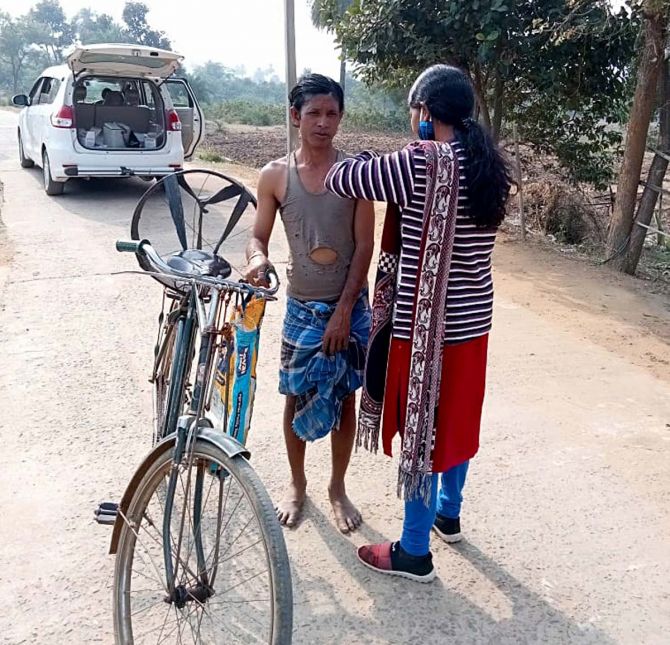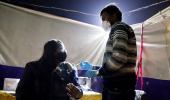'Antibodies remain in the blood for at least seven to nine months.'

The ministry of health guidelines noted that in view of the recent global surge in Covid cases, detection of Omicron variant, scientific evidence, and inputs and suggestions of 'COVID-19 Working Group of the National Technical Advisory Group on Immunisation' (NTAGI), as well as of 'Standing Technical Scientific Committee' of NTAGI, India has decided to modify its Covid vaccination policy. Vaccinations for the age group of 15-18 years open on January 3.
'For such beneficiaries, vaccination option would be 'Covaxin' only,' the guidelines noted.
A senior government official said this was done according to advice from the NTAGI, which has not recommended the Zydus Cadila vaccine for use on those under 18 years.
Health care workers, frontline workers, and people above 60-years of age with co-morbidities who have received two doses of Covid vaccines, a third shot would be provided from January 10.
'The prioritisation and sequencing of this precaution dose would be based on the completion of 9 months, -- 39 weeks from the date of administration of 2nd dose,' the guidelines said.
This implies that someone who completed her/his second dose in April this year would be eligible for their third shot in January 2022. Demand for the third dose would, thus, grow gradually. Vaccination for senior citizens was opened in March this year.
Only after the completion of nine months after the second dose can one register on Co-WIN to get the third dose.
Nearly 30 million health care and frontline workers would be eligible for a third shot of the vaccine in January.
As for the 'precaution shots' for the elderly, people above 60 years of age with co-morbidities are eligible. India's elderly population (above 60 years) is 138 million, according to the National Statistical Office 'Elderly in India 2021'.
Even if we consider 50 per cent of this population to have serious co-morbidities, making them eligible for a third Covid shot, the number roughly comes to nearly 70 million. While all citizens irrespective of their income status are entitled to free Covid vaccination, the government encouraged those who have the ability to pay to use private vaccination centres.
The decision to maintain a gap of about nine months and above was taken on the basis of scientific studies conducted by government institutions, such as the Indian Council of Medical Research.
A top government official told Business Standard that there are at least five or six studies done in India (yet to be released publicly) that have tracked the antibody levels after two shots of Covishield (AstraZeneca vaccine made by Serum Institute of India) and Covaxin (Bharat Biotech's vaccine).
"It shows that unlike the mRNA vaccines, which induce a sharp rise in antibodies and a sharp fall after 3-4 months, antibodies induced by Covishield and Covaxin gradually increase and decrease," the official said.
"Antibodies remain in the blood for at least seven to nine months, and the memory T-Cells remain active even afterwards," the official added.
Meanwhile, for children, Co-WIN will allow the use of student ID cards as proof, in case someone does not have an Aadhaar card. Children between 15 years and 18 years can start registering from January 1, RS Sharma, chief of Co-WIN platform said.











